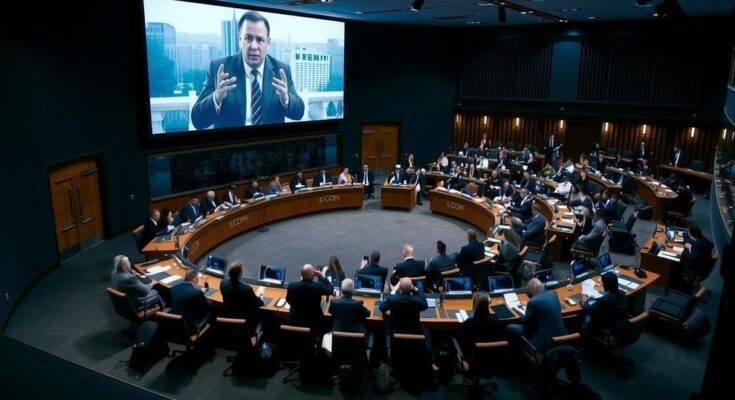Fourteen UConn students attended COP29 in Baku, Azerbaijan, reflecting on its profound atmosphere of activism and solutions for climate issues. Key takeaways include the urgency of grassroots advocacy, the importance of understanding regional contexts in environmental challenges, and the essential role of the private sector in addressing climate change. Insights from panels and protests at the conference reveal a shared commitment to diverse climate solutions amidst skepticism surrounding the event’s efficacy.
In 2023, fourteen University of Connecticut students participated in the 29th United Nations Climate Change Conference of Parties (COP29) held in Baku, Azerbaijan. This annual event gathers climate experts, policymakers, and leaders to address the pressing climate crisis. The UConn@COP fellowship offers students experiential learning opportunities to witness climate policy-making firsthand, culminating in blog posts that reflect their initial impressions of the conference’s distinct atmosphere and the urgency of global climate action.
Among the students, Mayowa Oladele, a Ph.D. candidate, described COP29 as a transformative experience characterized by a vibrant exchange of ideas and activism directed towards sustainable solutions. The conference began with a compelling protest by Niger Delta representatives advocating for reparations for environmental damages inflicted by oil companies, underscoring the human cost of climate negligence. Oladele’s attendance at sessions on geothermal energy and methane reduction highlighted practical strategies being discussed, emphasizing collaboration and diverse solutions as key vehicles for progress.
Faiz Farooqui, a UConn undergraduate, shared insights from the Green Zone, where more open and interactive discussions took place. He reflected on the sustainability initiatives at Liverpool FC through a roundtable with its Director of Impact, Rishi Jain. Farooqui illustrated the real-world consequences of climate change through poignant narratives from Mongolia, where rising temperatures drive nomadic populations to cities, exacerbating urban pollution and health crises.
Mariam Vargas, another student, noted the pervasive skepticism surrounding COP29, particularly regarding its host nation, Azerbaijan, and the role of private sectors within the conference. Vargas emphasized the necessity for constructive dialogue that prioritizes collaboration over criticism. She highlighted the need for contextual understanding of pollution issues in the Global South and argued for the indispensable role of the private sector in facilitating climate innovations and financial support for vulnerable nations.
The students’ experiences collectively reveal COP29 as a dynamic platform for addressing climate challenges, merging grassroots movements, technological advancement, and policy engagement. It serves as a crucial meeting ground where multiplicity in opinions and experiences can synergize toward actionable climate solutions.
The United Nations Climate Change Conference of Parties (COP) is an annual global convening where leaders and experts come together to discuss and negotiate actions on climate change. This year’s COP29, taking place in Baku, Azerbaijan, sees participation from various stakeholders, including representatives from academic institutions such as the University of Connecticut (UConn). The UConn@COP fellowship aims to expose students to the intricacies of climate policy-making and fosters critical reflections on sustainability and activism across a global stage. This article synthesizes the initial impressions and reflections of UConn students who attended COP29, illustrating the diverse perspectives and insights gleaned from the event.
The experiences shared by UConn students at COP29 highlight the multifaceted nature of climate change discussions, marked by a blend of activism, innovation, and policy-making. Observations from the conference underscore the importance of collaboration and understanding the context behind environmental challenges faced by different regions. While acknowledging the criticisms of such conferences, the students advocate for engaging constructively within these platforms to drive meaningful climate action.
Original Source: today.uconn.edu




